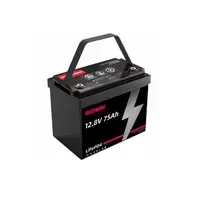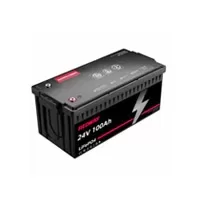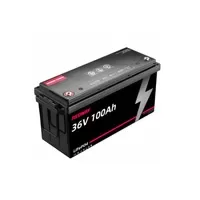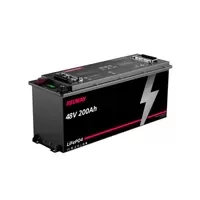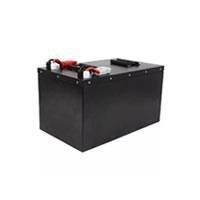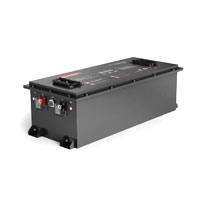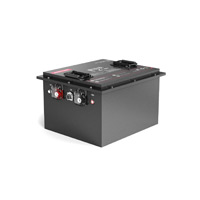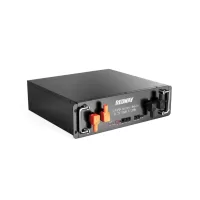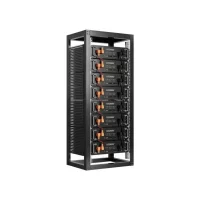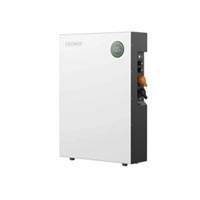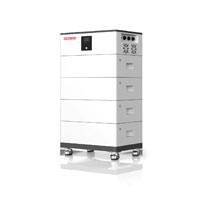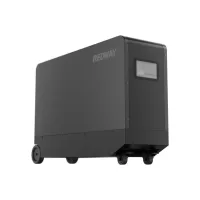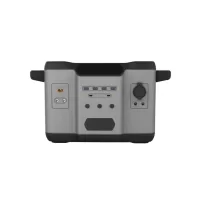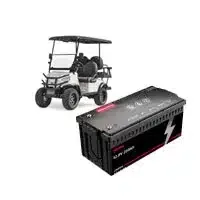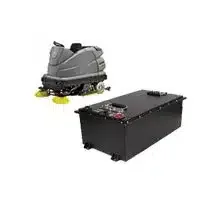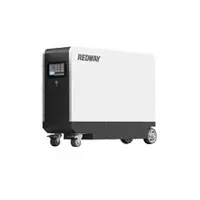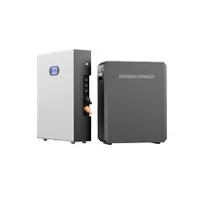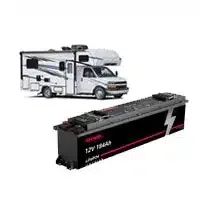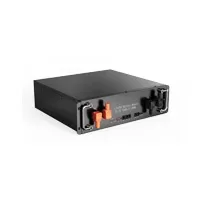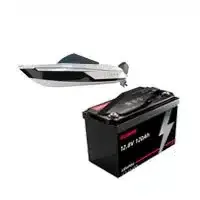Welcome to the electrifying world of amp hours! If you’ve ever found yourself scratching your head at terms like “500 amp hours,” fear not, because we’re here to shed some light on this powerful subject. Whether you’re an electric vehicle enthusiast or simply curious about batteries and their capacities, understanding what 500 amp hours mean is key. So buckle up and get ready for a jolt of knowledge as we dive into this energizing topic!
Understanding Amp Hours
Understanding Amp Hours
Amp hours, often abbreviated as Ah, is a unit of measurement that tells you how much energy a battery can store. It’s like the fuel tank of your car but for electrical power instead. Essentially, amp hours represent the amount of current a battery can provide over a specific period.
To put it simply, if you have a battery with 500 amp hours, it means that it can supply 500 amps of current for one hour before being fully drained. Now you might be wondering why not just measure batteries in terms of amps alone? Well, by factoring in time (hours), we get a more accurate representation of the battery’s capacity and endurance.
Think about it this way: if two batteries both deliver 100 amps but have different amp hour ratings, the one with more amp hours will last longer because it has more total energy stored within its cells.
So when considering batteries for your electronic devices or vehicles, understanding their amp hour rating becomes crucial. It helps determine how long they will run before needing to be recharged or replaced.
How Amp Hours are Measured
How Amp Hours are Measured
When it comes to understanding batteries, one important factor to consider is the amp hour rating. This rating tells us how much energy a battery can store and deliver over a certain period of time. But have you ever wondered how amp hours are actually measured?
Amp hours are typically determined through testing in a controlled environment. The battery is discharged at a constant rate until its voltage reaches a specified cutoff point. The amount of time it takes for the battery to reach this cutoff point determines the amp hour rating.
To ensure accuracy, multiple tests may be conducted on different batteries from the same batch. This helps account for any variations in performance between individual units.
Measuring amp hours accurately is crucial because it allows users to compare and select batteries that best suit their needs. Whether you’re powering an RV or running solar panels, having an understanding of your energy requirements will help you make informed decisions.
It’s worth noting that while manufacturers strive to provide accurate ratings, real-world conditions can affect actual performance. Factors such as temperature, load type, and discharge rate can all impact how long a battery will last.
Understanding how amp hours are measured gives us insight into the capacity and efficiency of different batteries available on the market today. By considering various factors that affect amp hour ratings like temperature and load type, we can choose the right battery for our specific applications with confidence!
Factors that Affect Amp Hour Ratings
Factors That Affect Amp Hour Ratings
When it comes to understanding amp hour ratings, it’s important to consider the factors that can affect these ratings. One of the main factors is the type of battery being used. Different types of batteries have different energy densities and internal resistance, which can impact their amp hour rating.
Another factor that affects amp hour ratings is temperature. Batteries generally perform best within a certain temperature range, and extreme temperatures can reduce their capacity. High temperatures can cause faster self-discharge, while cold temperatures can decrease the overall efficiency.
The rate at which a battery is discharged also affects its amp hour rating. Most batteries are rated based on a specific discharge rate, typically over 20 hours or more. If you exceed this rate, the actual capacity may be lower than the stated rating.
Additionally, age and usage play a role in determining amp hour ratings. Over time, batteries naturally degrade and lose some of their capacity. Heavy usage or improper charging practices can further accelerate this degradation process.
It’s worth noting that manufacturers’ specifications for amp hour ratings are often based on ideal laboratory conditions and may not reflect real-world performance accurately.
Understanding these various factors will help you make informed decisions when choosing a battery for your needs
Why 500 Amp Hours is a Common Rating
One reason why 500 Amp Hours is a common rating for batteries is because it offers a good balance between capacity and size. Batteries with this rating are often used in applications where moderate to high power output is required, such as in marine or RV setups.
Another factor that contributes to the popularity of 500 Amp Hour batteries is their versatility. They can be used for both starting and deep cycle applications, making them suitable for various needs. This flexibility makes them appealing to users who want a single battery solution that can handle different tasks.
Additionally, 500 Amp Hour batteries are able to provide extended periods of power without needing frequent recharging. This makes them ideal for off-grid systems or situations where access to electricity may be limited. With a larger capacity, these batteries can support devices and appliances for longer durations before requiring recharge.
Furthermore, the availability of accessories and support systems designed specifically for 500 Amp Hour batteries adds to their appeal. Many manufacturers offer charging solutions, monitoring devices, and other components that are compatible with this battery rating. This enables users to easily integrate these batteries into their existing setups without much hassle.
In conclusion (not concluding yet!), the popularity of 500 Amp Hours as a common battery rating stems from its optimal combination of capacity, versatility, endurance, and compatibility with various accessories – factors that make it well-suited for different practical applications.
Practical Applications of 500 Amp Hours
Practical Applications of 500 Amp Hours
When it comes to battery power, having a rating of 500 amp hours opens up a world of possibilities. With this kind of capacity, you can tackle various tasks that require a significant amount of energy. Let’s explore some practical applications where a battery with 500 amp hours can come in handy.
1. Off-Grid Living: If you choose to live off-grid or go camping for extended periods, having a battery bank with 500 amp hours is crucial. It provides enough power to run essential appliances like refrigerators, lights, and even small electronics without worrying about running out of juice too quickly.
2. Solar Power Systems: For those who have installed solar panels on their roofs or properties, a battery bank with 500 amp hours ensures reliable storage for the excess energy generated during the day. This stored energy can be used when sunlight is scarce or during power outages.
3. Recreational Vehicles (RVs): RV enthusiasts know that having ample power while on the road enhances their overall experience. A battery system boasting 500 amp hours allows RV owners to operate various electrical devices such as air conditioners, TVs, microwaves, and more without being tethered to external sources.
4.
Golf Carts: Many golf courses rely on electric golf carts for transportation around the greens. A cart equipped with batteries offering 500 amp hours ensures an extended range and long-lasting performance between charges.
5.
Emergency Backup Power: In case of emergencies or natural disasters where access to electricity becomes limited or nonexistent, having a battery bank capable of delivering 500 amp hours can provide vital backup power for critical devices like medical equipment or communication systems.
The practical applications mentioned here are just scratching the surface! The versatility offered by batteries rated at 500 amp hours makes them suitable for numerous other scenarios as well – from marine use and industrial applications to powering remote cabins and workshops.
Whether you’re an outdoor enthusiast, a homeowner looking for backup power solutions, or
Choosing the Right Battery for Your Needs
Choosing the Right Battery for Your Needs
When it comes to selecting a battery, there are several factors to consider in order to find the one that best suits your needs. First and foremost, you need to determine what specific purpose you will be using the battery for. Is it for powering a small device or a larger system? This information will help you narrow down your options.
Next, take into account the voltage requirements of your equipment. Different devices require different voltages, so it’s important to ensure compatibility with any potential battery choices. Additionally, consider how long you need the battery to last on a single charge. Some batteries offer longer run times than others, which can be crucial depending on your usage patterns.
Another aspect to consider is the weight and size of the battery. If portability is important to you, opt for a lighter and more compact option that won’t weigh you down or take up too much space.
Additionally, think about whether rechargeable or non-rechargeable batteries suit your needs better. Rechargeable batteries can save money in the long run but may require periodic recharging time.
Always check customer reviews and ratings before making a final decision. Others’ experiences can provide valuable insights into performance and reliability.
By carefully considering these factors and conducting thorough research beforehand, you can confidently choose the right battery that meets all of your needs efficiently and effectively
Conclusion
Conclusion
Understanding the concept of amp hours is crucial when it comes to choosing the right battery for your needs. Amp hours measure the capacity of a battery and determine how long it can power various devices or systems. It is important to note that amp hour ratings can be affected by factors such as temperature, discharge rate, and age.
A 500 amp hour rating is a common specification for batteries in many practical applications. This rating signifies a significant amount of power storage, making it suitable for powering larger appliances or running multiple devices simultaneously. Whether you’re camping off-grid, running an RV, or utilizing renewable energy sources like solar panels, a 500 amp hour battery will provide ample power to meet your requirements.
When selecting a battery with a specific amp hour rating, consider factors such as the intended usage time and the load it will need to handle. It’s also essential to choose a reliable brand that offers good performance and longevity.
Understanding what 500 amp hours mean allows you to make informed decisions about which battery best suits your needs. By considering various factors like application-specific demands and evaluating reputable brands’ offerings, you can ensure reliable power supply wherever you may need it most!


